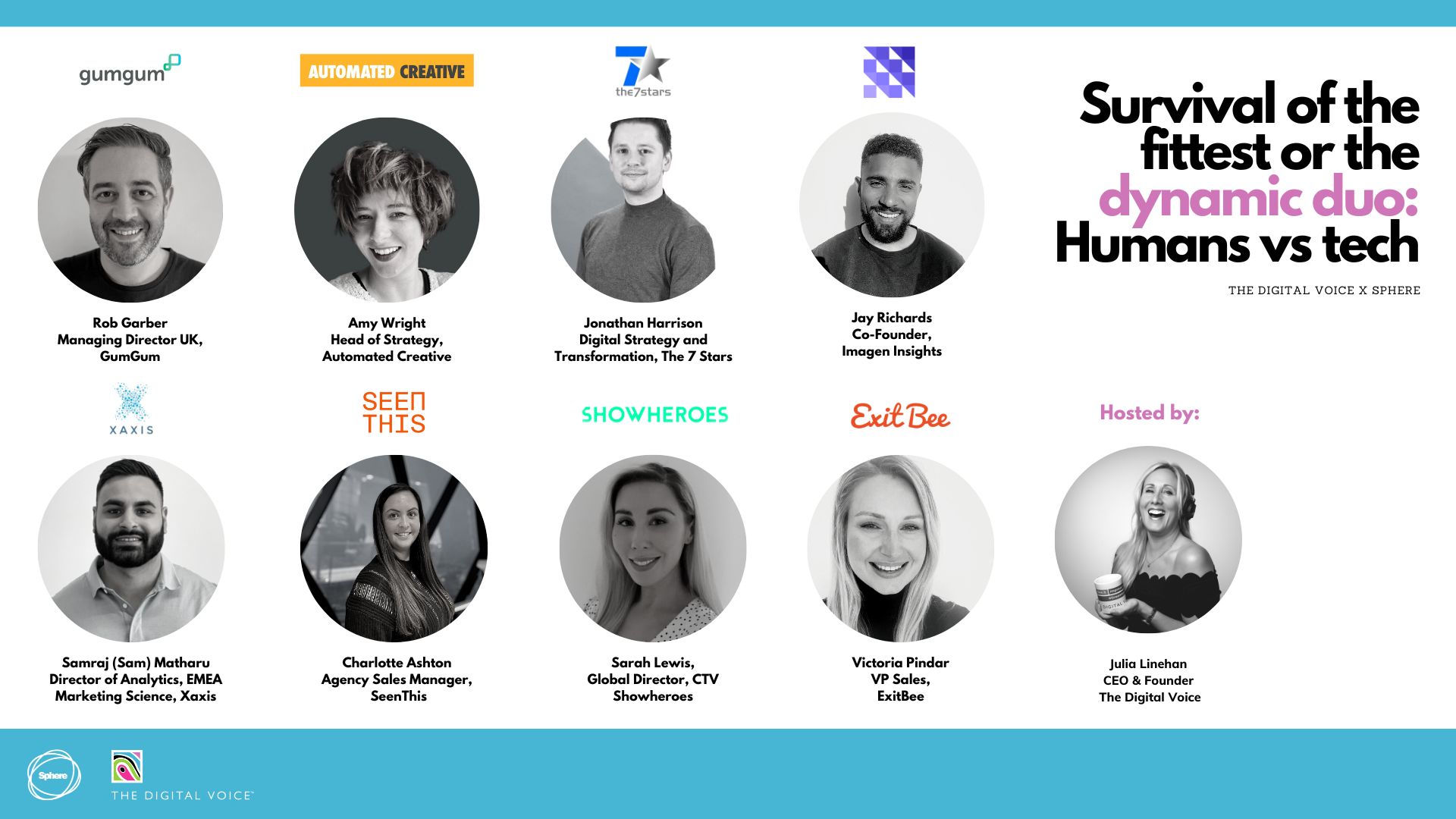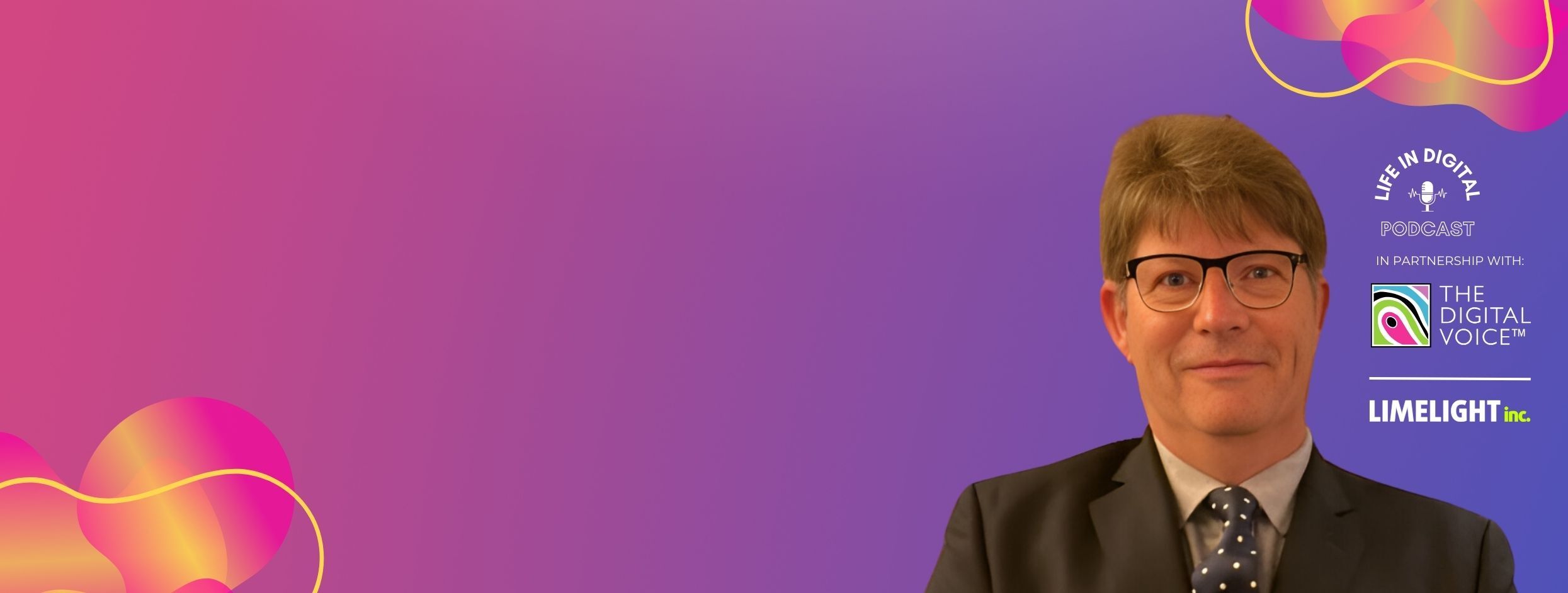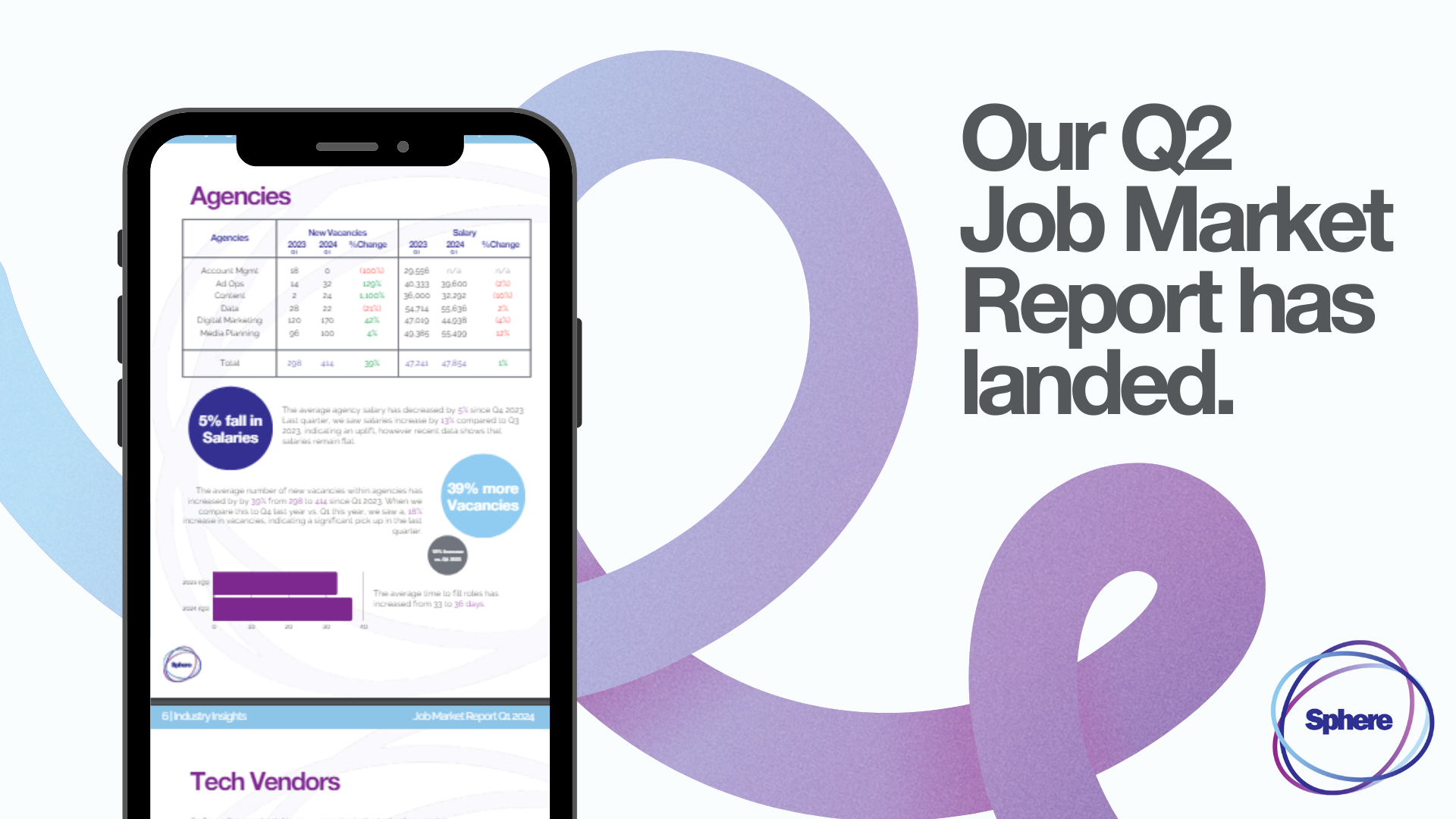
Chat GPT and the Future of Advertising: Balancing Automation and Human Creativity
01 Mar, 20235 MinutesThe intersection of humanity and technology has become a hot topic in the advertising indust...
The intersection of humanity and technology has become a hot topic in the advertising industry. On February 22nd, our panel of experts gathered for the Humans vs Tech: Survival of the fittest or the dynamic duo? event in partnership with The Digital Voice to explore the potential and challenges of this changing landscape.
From discussing AI's impact on the industry to the ethics of its use, the event explored the current state of technology and its role in shaping the future of advertising. Our speakers and panelists covered a wide range of topics, from using ChatGPT for wedding planning to the importance of context in delivering the right message. In this blog post, we'll dive deeper into the highlights of the event and explore the opportunities and challenges presented by the intersection of humans and technology in the advertising industry.
We had the pleasure of being joined by industry experts: Rob Garber (Managing Director UK at GumGum), Amy Wright (Head of Strategy at Automated Creative), Jonathan Harrison (Digital Strategy and Transformation at The7Stars), Jay Richards (Co-Founder of Imagen Insights), Sam Matharu (Director of Analytics EMEA at Xaxis), Charlotte Ashton (Agency Sales Manager at SeenThis), Sarah Lewis (Global Director CTV at Showheroes), Victoria Pindar (VP of Sales at Exit Bee)
Can AI Help Us Overcome Our Own Biases?
Our first speaker, Rob Garber (Managing Director UK at GumGum), shared his thoughts on AI, expressing both its value and concern about the amount of AI entering the world.
He shared Playground XYZ's Attention Intelligence Platform, which accurately targets attention with AI being able to predict it better than humans:
"Humans make assumptions. Humans are conditioned and they are biased, based on what they do: we need to let machines take over to allow them to work their magic"
Rob also highlighted the importance of context in delivering the right message, mentioning their technology's ability to scan online content like a human would.
The discussion then turned to the ethics of AI, with concerns raised about using AI for malicious purposes, such as deep fakes and sexualizing the female body. Rob stressed the importance of ensuring that AI is trained ethically and consistently told where it's going wrong and right. He also emphasized the importance of asking the right questions when choosing an AI vendor and mentioned the GumGum university, which provides a set of questions that brands and agencies can ask of their external partners.
Click to view the full presentation
Creativity, AI, and advertising
Our first panel with industry experts Jonathan Harrison, Jay Richards, and Charlotte Ashton discussed the role of automation in advertising to enhance creativity and streamline processes.
One of the key points discussed in the panel was the use of automation in making complex agency tasks easier. Harrison talked about how his agency onboarded off-the-shelf technology to automate tasks, while Ashton highlighted the use of a banner builder that simplified the process of creating ads.
Ashton brought up the issue of bias and how humans have unconscious biases that could influence the content created by AI.:
“This (AI) is going to go really fast; and there’s nothing in place right now to keep it in check. Where do the ethics of Google and Microsoft lie, where will they create barriers? There’s never really anything that catches up as fast with legislation, so it will always be abused”
Richards shared how AI could create images within seconds, but that artists and creators aren't going anywhere, "the story behind a human who has perfected their craft for hours is so much more powerful".
Whilst ChatGPT was great for creative inspiration, a human touch is still needed to create engaging content.
Automated Creative
Clients are demanding more work in less time for less money and better quality and automation are fuelling this further. With the competition getting increasingly intense, it's becoming difficult to deliver all three without sacrificing quality.
Amy, a representative from Automated Creative, spoke about the challenges of closed-loop systems in the industry, where data on why an ad creative did or didn't work is lost. When clients demand more, agencies turn to systems to make things cheaper and faster, but is it good? Using automation to make the product better or faster doesn't change the system; it just amplifies what is worst within the industry.
To transform the industry, Amy suggests taking a cue from aviation. Aviation records all kinds of data to track what could go wrong and prevent accidents. AC is the black box of the technology industry, uniting creativity with automation to optimize media performance. AC is an open-loop system where every ad run increases consumer intelligence, and insights are used to improve the campaign each time.
With AC, agencies can create wider ideas, learn what works, and drastically improve performance, increasing conversion metrics. The technology has improved performance, offered better insights, and scaled production. AC believes that clients should demand this every day, and agencies need to speed up and integrate it into their processes.
To integrate AC, creative teams need to work with influencers, TVC, ATL, and other such platforms. Open-loop automation is a massive opportunity for creative but should become a non-negotiable. Amy suggests being more critical and open as an industry and automating what works, not what you think works.
The biggest challenge with AI, such as Google Shopping, is that human partnership with AI creates the best results. AI on its own doesn't produce good quality content. The technology should be the starting point, not the end point.
Click to view the full presentation
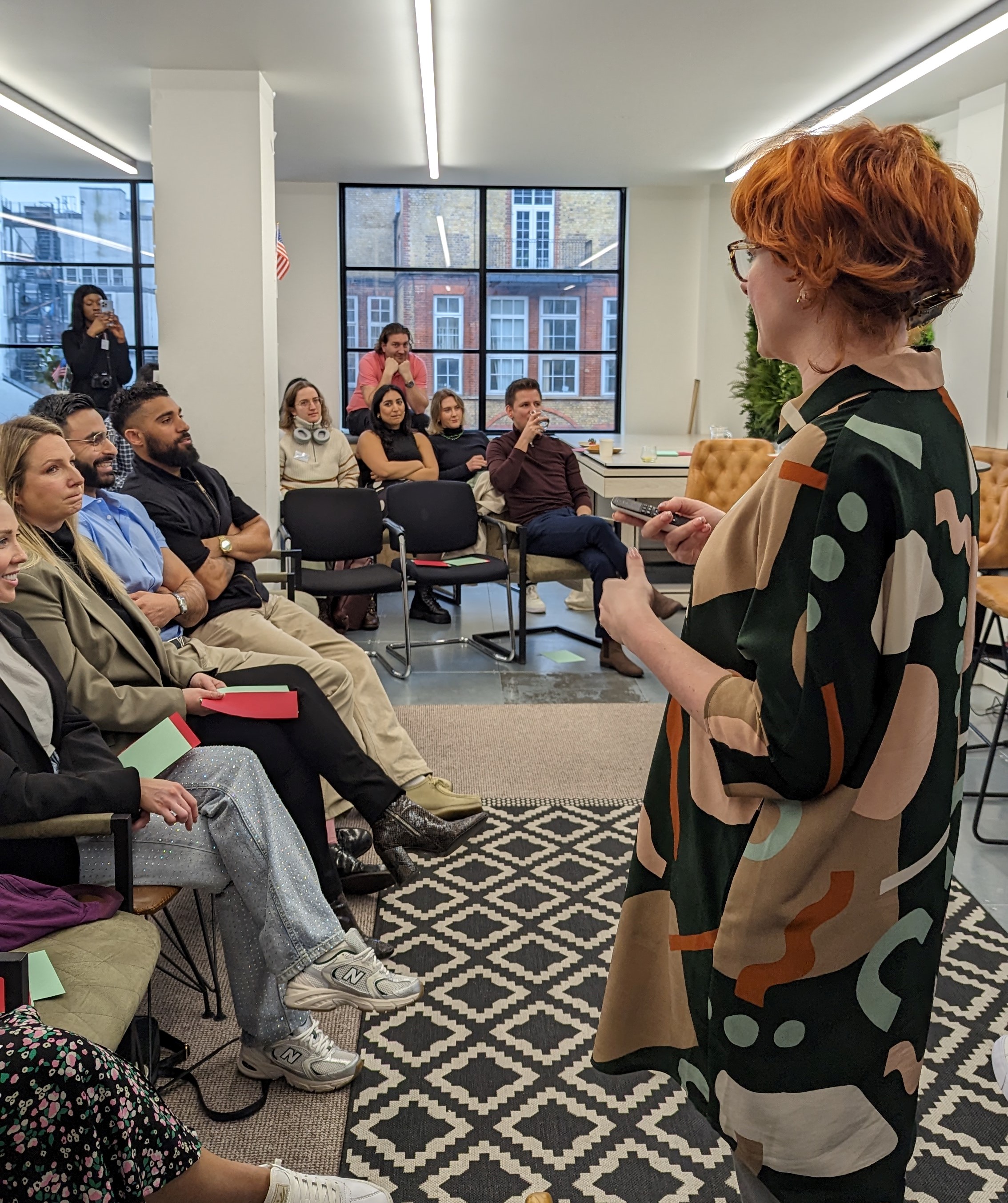
Learning to Use ChatGPT Effectively: Tips and Advice from Industry Experts
ChatGPT was a major talking point, since launching in December 2021, its influence continues to grow and concerns about the role of humans in the process and the potential risks and consequences of its use are becoming increasingly important.In our final panel, Sarah Lewis, Victoria Pindar, and Samraj Matharu shared their insights on the impact of ChatGPT and AI in the news and advertising industry.
As Lewis pointed out, AI can also be dangerous if not used with human understanding:
“We have a responsibility to make sure we are inputting something that is genuine and what we put out there does indeed have a layer of human creativity, human auditing and human understanding”
Different biases from different viewpoints can create polarizing opinions that can harm the industry. It's crucial to have human experiences and insights that can help create a more balanced perspective.
Pindar added that real-time information is crucial for the news industry. ChatGPT can provide more scalable content, but the platform needs to be moderated and isn't currently offering real-time data, "you can’t replace experience. They’re experiencing it there, the human stories, that’s incredibly powerful. AI can’t do that. There’s definitely a huge benefit and role from it but you can’t replace that experience".
Matharu highlighted the importance of critical thinking when using ChatGPT and shared his predictions for the future and how coding, analytics and the use of Excel will become more redundant as AI makes huge waves in automating many manual tasks.
As with every panel, concerns around ethics and industry standards were paramount.
Pindar expressed concern as a parent, trying to keep ahead of the game on what content is coming out and what children are consuming, "it’s another level at this point; it’s about educating people on how to control it within reason. We need to be able to moderate it and understand it to prevent it from getting out of control".
The panel also provided advice on how to learn and use ChatGPT effectively. Matharu recommended reading about what AI actually means and understanding what it can and cannot do. Pindar suggested not overcomplicating the use of AI and focusing on how it can aid your business model. Lewis encouraged people not to panic and to explore the potential of ChatGPT while helping it evolve in a positive way: "[it's about] making things efficient but marrying it with that human creativity”
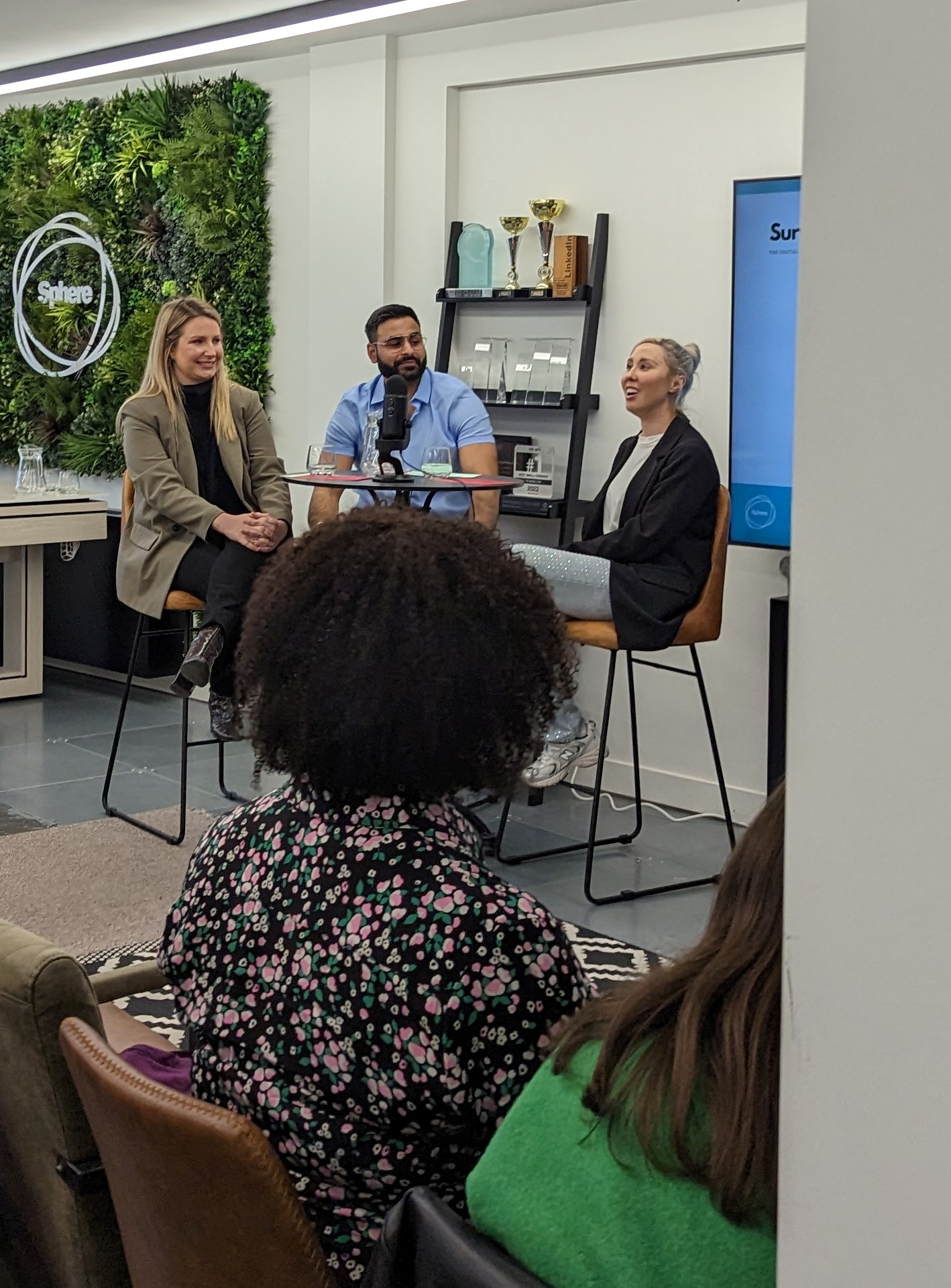
A huge thank you to everyone who attended the event and to The Digital Voice for partnering with us. If you have any feedback for us, please email hello@spheredigitalrecrutiment.com with the subject line Feedback: Humans vs Tech Event
